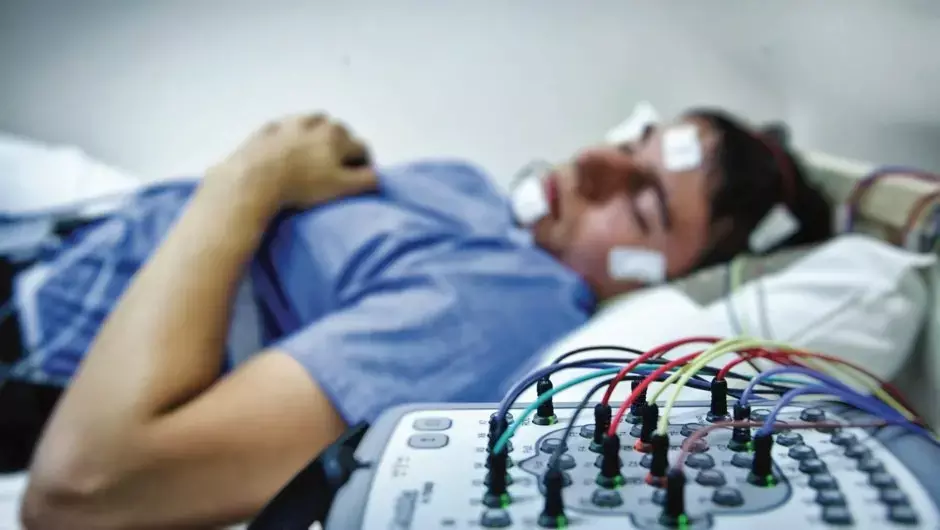- Home
- Medical news & Guidelines
- Anesthesiology
- Cardiology and CTVS
- Critical Care
- Dentistry
- Dermatology
- Diabetes and Endocrinology
- ENT
- Gastroenterology
- Medicine
- Nephrology
- Neurology
- Obstretics-Gynaecology
- Oncology
- Ophthalmology
- Orthopaedics
- Pediatrics-Neonatology
- Psychiatry
- Pulmonology
- Radiology
- Surgery
- Urology
- Laboratory Medicine
- Diet
- Nursing
- Paramedical
- Physiotherapy
- Health news
- Fact Check
- Bone Health Fact Check
- Brain Health Fact Check
- Cancer Related Fact Check
- Child Care Fact Check
- Dental and oral health fact check
- Diabetes and metabolic health fact check
- Diet and Nutrition Fact Check
- Eye and ENT Care Fact Check
- Fitness fact check
- Gut health fact check
- Heart health fact check
- Kidney health fact check
- Medical education fact check
- Men's health fact check
- Respiratory fact check
- Skin and hair care fact check
- Vaccine and Immunization fact check
- Women's health fact check
- AYUSH
- State News
- Andaman and Nicobar Islands
- Andhra Pradesh
- Arunachal Pradesh
- Assam
- Bihar
- Chandigarh
- Chattisgarh
- Dadra and Nagar Haveli
- Daman and Diu
- Delhi
- Goa
- Gujarat
- Haryana
- Himachal Pradesh
- Jammu & Kashmir
- Jharkhand
- Karnataka
- Kerala
- Ladakh
- Lakshadweep
- Madhya Pradesh
- Maharashtra
- Manipur
- Meghalaya
- Mizoram
- Nagaland
- Odisha
- Puducherry
- Punjab
- Rajasthan
- Sikkim
- Tamil Nadu
- Telangana
- Tripura
- Uttar Pradesh
- Uttrakhand
- West Bengal
- Medical Education
- Industry
EEG-Based Model Offers Hope for Personalized Depression Treatment: JAMA

Untreated depression has become an escalating public health concern, with sufferers often enduring a lengthy trial-and-error process to find effective treatments. Utilizing electroencephalography offers a dependable means of anticipating how individuals with depression will respond to particular antidepressant drugs, potentially guiding the selection of the most suitable treatment for these patients. The outcomes were published in the Journal of American Medical Association.
have developed an electroencephalography (EEG) based predictive model that could forecast the response of individuals suffering from depression to two different selective serotonin reuptake inhibitor (SSRI) medications. The study tapped into EEG data collected between 2011 and 2017 from two independent cohorts: one from the Canadian Biomarker Integration Network in Depression (CAN-BIND) group and the other from the Establishing Moderators and Biosignatures of Antidepressant Response for Clinical Care (EMBARC) consortium.
Participants, aged 18 to 65, all diagnosed with major depressive disorder, were included in the study. The data collected was rigorously analyzed throughout 2022.
The CAN-BIND group underwent an 8-week treatment regimen of escitalopram, while the EMBARC participants were part of a double-blind trial and received an 8-week sertraline treatment or a placebo. The model's performance was assessed using balanced accuracy, specificity, and sensitivity metrics.
During internal validation with the CAN-BIND cohort, the model achieved a balanced accuracy of 64.2%, a sensitivity of 66.1%, and specificity of 62.3%. The external validation with the EMBARC group showed similarly promising results, with a balanced accuracy of 63.7%, sensitivity of 58.8%, and specificity of 68.5%. For the EMBARC placebo group, the model maintained a specificity of 47.3%, indicating its effectiveness in predicting response specifically to SSRIs.
These results suggest that EEG-based models could revolutionize the way depression is treated by helping clinicians predict which SSRI medication is most likely to be effective for an individual patient. While further research and validation are needed, this EEG-based model offers a glimmer of hope for the millions of people worldwide suffering from depression, paving the way for a brighter future with more targeted and effective treatments.
Reference:
Schwartzmann, B., Dhami, P., Uher, R., Lam, R. W., Frey, B. N., Milev, R., Müller, D. J., Blier, P., Soares, C. N., Parikh, S. V., Turecki, G., Foster, J. A., Rotzinger, S., Kennedy, S. H., & Farzan, F. (2023). Developing an electroencephalography-based model for predicting response to antidepressant medication. JAMA Network Open, 6(9), e2336094–e2336094. https://doi.org/10.1001/jamanetworkopen.2023.36094
Neuroscience Masters graduate
Jacinthlyn Sylvia, a Neuroscience Master's graduate from Chennai has worked extensively in deciphering the neurobiology of cognition and motor control in aging. She also has spread-out exposure to Neurosurgery from her Bachelor’s. She is currently involved in active Neuro-Oncology research. She is an upcoming neuroscientist with a fiery passion for writing. Her news cover at Medical Dialogues feature recent discoveries and updates from the healthcare and biomedical research fields. She can be reached at editorial@medicaldialogues.in
Dr Kamal Kant Kohli-MBBS, DTCD- a chest specialist with more than 30 years of practice and a flair for writing clinical articles, Dr Kamal Kant Kohli joined Medical Dialogues as a Chief Editor of Medical News. Besides writing articles, as an editor, he proofreads and verifies all the medical content published on Medical Dialogues including those coming from journals, studies,medical conferences,guidelines etc. Email: drkohli@medicaldialogues.in. Contact no. 011-43720751


